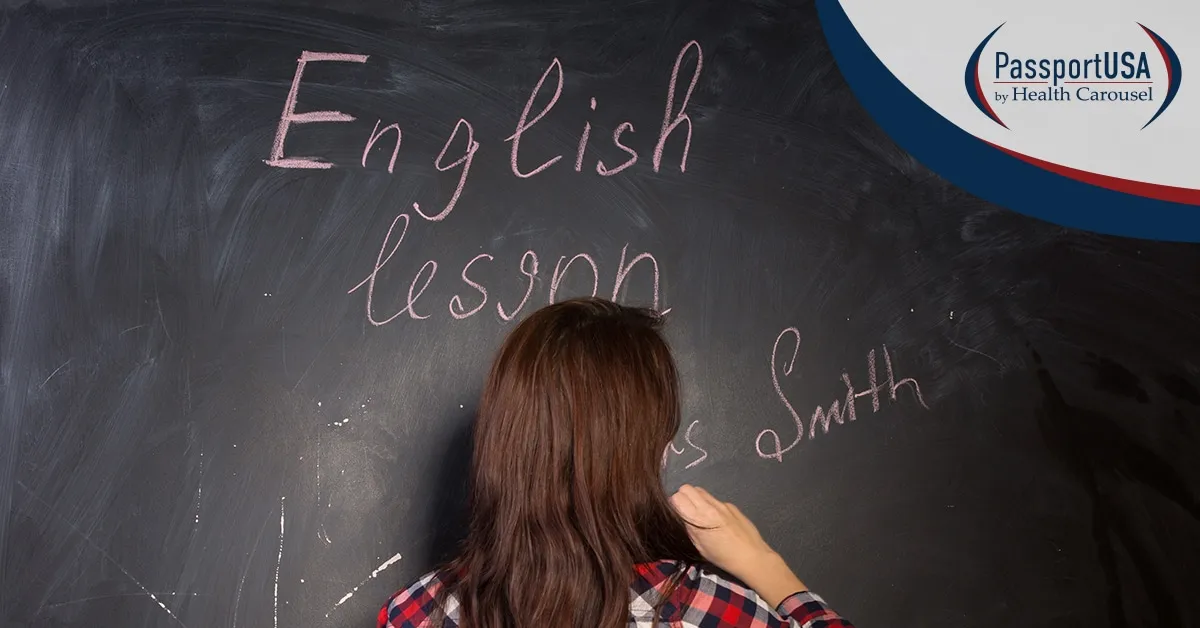5 Highly Effective Habits for IELTS Prep
December 14, 2020

PassportUSA has worked with thousands of successful language exam passers, so we have a good idea of what good IELTS prep looks like. The following is a shortlist of five highly effective habits for IELTS preparation:
1. Begin IELTS test preparation well in advance.
Cramming is often used as a means of memorizing large amounts of information in a short amount of time. It is often used by candidates who delay preparing until shortly before their scheduled IELTS Exam. Bad idea! Putting off learning and cramming before the test is not an effective strategy to use when preparing for any exam and trying to cram for IELTS is a sure-fire way to ensure you’ll be taking it again. Don’t make this mistake. We know you’re busy and you have lives to live in the meantime but think about what you really want. Take charge of your learning! You are a healthcare professional. You have endured the stress of passing many high-stakes exams, along with NCLEX, you’re obviously able to achieve excellence! Building and strengthening your English language skills requires commitment and diligence in learning and time-management – that doesn’t just begin the week of your exam. Begin practicing well in advance, with just a short time each day, and you’ll find yourself equipped to succeed on test day.
2. Find a friend or mentor who's fluent in English.
This is especially true for people who simply hate the traditional method of studying. Some people learn better by doing instead of listening. That’s totally understandable. If that’s your case, you need to find someone you know – a family member, a friend, a coworker – and routinely engage them in English. Don’t be discouraged if they’re always correcting you – that’s the point! Be open to any feedback. You know that you need to achieve a 6.5 overall and a 7 in speaking on IELTS, so begin studying well in advance. Find someone who can speak English well. By routinely speaking with this person, you’re actively learning and improving both your English listening and speaking abilities! By chit-chatting! If you don’t know many people who are fluent in English, that’s fine. You can practice listening by watching English movies or television shows. Use subtitles occasionally if you must. Download podcasts and watch videos online for more English-speaking material. For reading practice – you’re doing it right now! Use the internet and search for topics that interest you. Read them, and write about them somewhere. This might not sound like much, but if you are constantly listening, speaking and reading English, well before your scheduled exam, you’ll find yourself needing to study less as the language becomes easier for you.
3. Know your test.
Uncertainty is a key ingredient of fear. The less you know, the more you assume. So end the myth and find out precisely what you're up against. Prepare to sit for two hours and 45 minutes for IELTS. We can't stress this enough - proper planning is largely indicative of success. Following directions, or the inability to do so, can trip a lot of people up, especially on IELTS. You'd be surprised to learn how many people have failed this exam, not because of their English proficiency, but because of simply not following the directions! Many IELTS takers will just assume all the directions are the same the further they get into the test. This is a critical mistake. Is the question asking for a letter answer, or a complete word? Are you using "Not Given" in the YES/NO/NOT GIVEN segment? So many people just assume the answer is YES or NO, but do not forget about NOT GIVEN. Reading the instructions is the easiest way to prevent yourself from failing, assuming you've put in all the hard work up to this point.
4. Do not memorize.
Many candidates who go on to fail this exam thought they were prepared. This is because they memorized sentences, questions, they memorized certain paragraphs and try to use them whenever possible. For example, there are many practice exams you can take for IELTS. But that's all they are - practice. Too many make the mistake of just practicing these questions repeatedly. Practice exams are never a bad resource, but they aren't what make or break your real exam. Memorizing those questions and answers do little for you on test day, when you're of course taking an entirely different test. English is a skill. You sharpen skills with practice. Trying to memorize essays is not only a bad idea, it's actually harder to do! English is hard enough without having to recall someone else's thoughts word-for-word, and furthermore, many examiners can identify this! Follow these steps and ensure this isn't you on test day.
5. Stay calm, test on.
This is why step No. 1 is important. Time management is an important skill needed to succeed in these tests, especially in the shorter IELTS. The speaking portion of the exams seem to be most challenging, as test-takers will literally go blank and are suddenly at a loss for words when they need them most. This will often spark panic. Breathe. This happens to almost everyone. Know that you are not alone or unique - English is hard, and when forced to recite it under stressful conditions, the brain can simply lock. The best thing you can do is keep calm and do not scramble for words. Take a deep breath and let it come to you. Remember, you’ve been putting in all this work to prepare for this moment of test-taking. You are ready! You have been speaking, listening, reading, and writing in English. You may have used online preparation materials, attended a face-to-face review center, or had access to a great preparation book. You have been practicing speaking in English with someone you know, getting correct feedback on what you got wrong, you learned from it, and the smartest thing you did was that you began all this well before the week of your exam.
.*If you already passed NCLEX and signed our contract, we can assist you with IELTS. Please contact your most current assigned PassportUSA representative for more details.
Related Articles

Success Stories
Rose W. and Eloisa Mae R. Named as July 2025 Employees of the Month
August 4, 2025
Read More

English Proficiency
CGFNS Lowers English Speaking Exam Score Requirement—What This Means for You
February 7, 2025
Read More

English Proficiency
Passed NCLEX? 3 Reasons to Sign with PassportUSA Pre-IELTS
August 21, 2020
Read More
Start Your US Nursing Career
Turn your dreams into reality by taking the first step today. Apply to the PassportUSA program to connect with a recruiter.
.webp)
.webp)